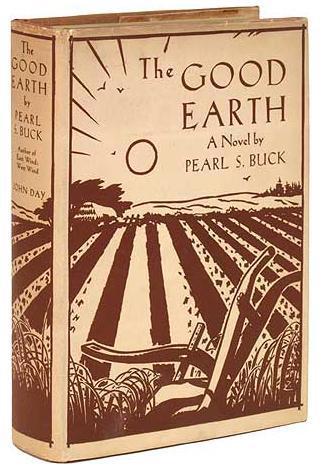
The Good Earth PDF
Preview The Good Earth
Boston Transcript One need never have lived in China or know anything about the Chinese to understand it or respond to its appeal. -- Review
Product DescriptionPearl S. Buck's epic Pulitzer Prize-winning novel of a China that was -- now in a Contemporary Classics edition.
Though more than sixty years have passed since this remarkable novel won the Pulitzer Prize, it has retained its popularity and become one of the great modern classics. "I can only write what I know, and I know nothing but China, having always lived there," wrote Pearl Buck. In The Good Earth she presents a graphic view of a China when the last emperor reigned and the vast political and social upheavals of the twentieth century were but distant rumblings for the ordinary people. This moving, classic story of the honest farmer Wang Lung and his selfless wife O-lan is must reading for those who would fully appreciate the sweeping changes that have occurred in the lives of the Chinese people during this century.
Nobel Prize winner Pearl S. Buck traces the whole cycle of life: its terrors, its passions, its ambitions and rewards. Her brilliant novel -- beloved by millions of readers -- is a universal tale of the destiny of man.
Wiki
The Good Earth is a novel by Pearl S. Buck published in 1931 and awarded the Pulitzer Prize for the Novel in 1932. The best selling novel in the United States in both 1931 and 1932,[1] it was an influential factor in Buck winning the Nobel Prize for Literature in 1938. It is the first book in a trilogy that includes Sons (1932) and A House Divided (1935).
The novel of family life in a Chinese village before the 1949 Revolution was a best-seller in both 1931 and 1932 and has been a steady favorite ever since. In 2004, the book was returned to the best seller list when chosen by the television host Oprah Winfrey for Oprah's Book Club.[2] The novel helped prepare Americans of the 1930s to consider Chinese as allies in the coming war with Japan. [3]
A Broadway stage adaptation was produced by the Theatre Guild in 1932, written by the father and son playwriting team of Owen and Donald Davis, but it was poorly received by the critics, and ran only 56 performances. However, the 1937 film, The Good Earth, which was based on the stage version, was more successful.
Plot summary
The story begins on Wang Lung's wedding day and follows the rise and fall of his fortunes. The House of Hwang, a family of wealthy landowners, lives in the nearby town, where Wang Lung's future wife, O-Lan, lives as a slave. As the House of Hwang slowly declines due to opium use, frequent spending, and uncontrolled borrowing, Wang Lung, through his own hard work and the skill of his wife, O-Lan, slowly earns enough money to buy land from the Hwang family. O-Lan delivers two sons and two daughters; the first daughter becomes mentally handicapped as a result of severe malnutrition brought on by famine. Her father greatly pities her and calls her "Poor Fool," a name by which she is addressed throughout her life. As soon as the second daughter is born, O-Lan kills her to spare her the misery of growing up in these hard times. During the devastating famine and drought, the family must flee to a large city in the south to find work. Wang Lung's malignant uncle offers to buy his possessions and land, but for significantly less than their value. The family sells everything except the land and the house. Wang Lung then faces the long journey south, contemplating how the family will survive walking, when he discovers that the "firewagon," as the locals call the newly-built train, takes people south for a fee.
While in the city, O-Lan and the children turn to begging while Wang Lung pulls a rickshaw. Wang Lung's father begs but does not earn any money, and sits looking at the city instead. They find themselves aliens among their more metropolitan countrymen who look different and speak in a fast accent. They no longer starve, due to the one-cent charitable meals of rice gruel, but still live in abject poverty. Wang Lung longs to return to his land. When armies approach the city he can only work at night hauling merchandise out of fear of being conscripted. When a food riot erupts, Wang Lung joins a mob that is looting a rich man's house and corners the man himself, who fears for his life and gives Wang Lung all the money he has in order to buy his safety.
Wang Lung uses the money to bring the family home, buy a new ox and farm tools, and hire servants to work the land for him. In time, two more children are born, a son and a daughter. Using jewels O-Lan looted from the house in the southern city, Wang Lung is able to buy the House of Hwang's remaining land. He is eventually able to send his first two sons to school and apprentice the second one as a merchant. As Wang Lung becomes more prosperous, he buys a concubine named Lotus. O-Lan dies, but not before witnessing her first son's wedding. Wang Lung and his family move into town and rent the old House of Hwang. Wang Lung, now an old man, wants peace, but there are always disputes, especially between his first and second sons, and particularly their wives. Wang Lung's third son runs away to become a soldier. At the end of the novel, Wang Lung overhears his sons planning to sell the land and tries to dissuade them. They say that they will do as he wishes, but smile knowingly at each other.
